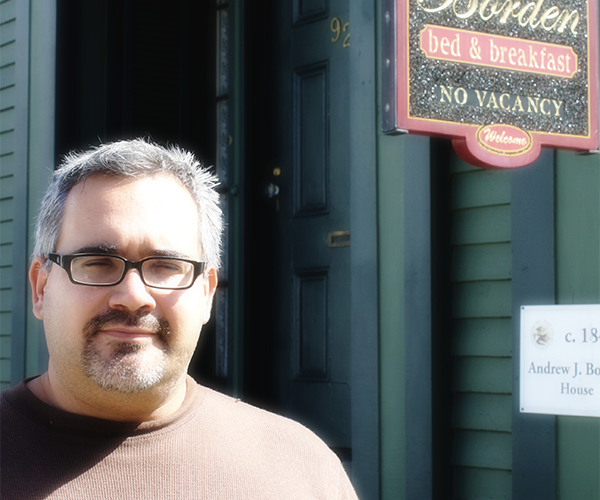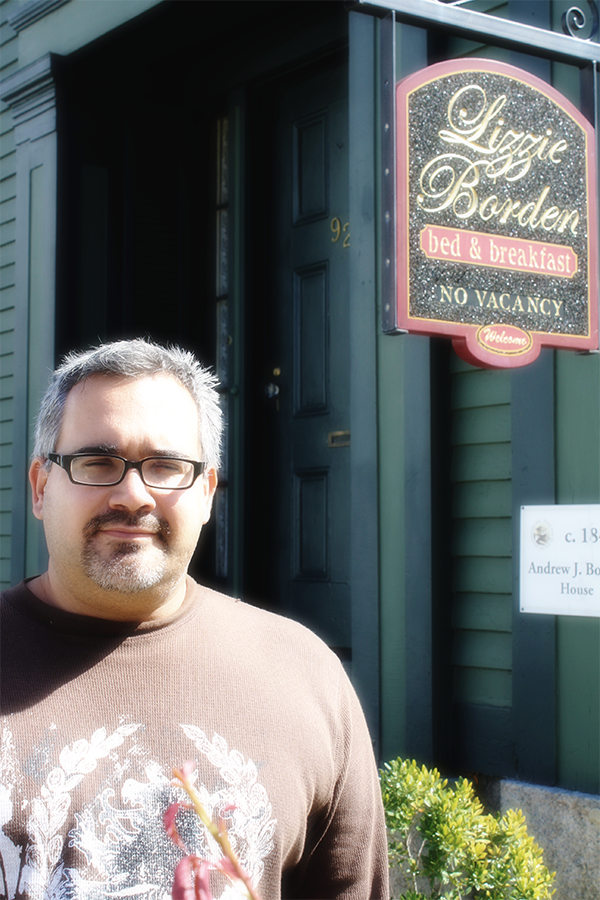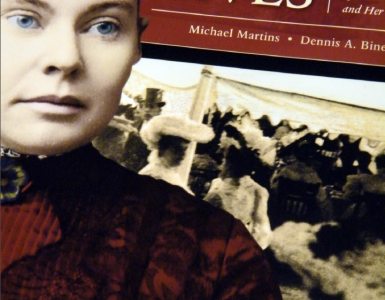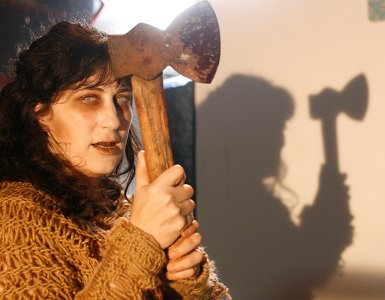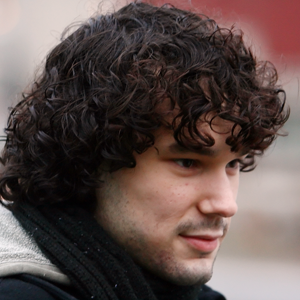by Stefani Koorey
First published in Spring, 2012, Volume 7, Issue 2, The Hatchet: Journal of Lizzie Borden Studies.
Ric Rebelo is an award-winning filmmaker and documentarian. He is a professor of communications at Bristol Community College in Fall River, Massachusetts. Lizbeth has won two awards thus far: Best Documentary by the Alliance for Community Media and Best Documentary at the 2010 Rock and Shock Film Festival. Another of his works, Island of My Dreams is a fifty-six minute documentary and was first shown on PBS in 2011.
Q: How and when did you become interested in the Borden murders of 1892?
A: I had immigrated to Fall River from the Azores when I was three years old and for as long as I can remember there was talk of Lizzie Borden. I lived on Third Street only one block over and all of the children talked endlessly about Lizzie “coming to get you.” So as I grew up I watched any and all documentaries or reports on Lizzie and I had hoped one day to do my own and that is what brought me here.
Q: What is Lizbeth: A Victorian Nightmare about? How are you approaching the story? Do you offer some “solution” to the crimes?
A: Lizbeth came about from watching all of the other documentaries and asking the question, “what is missing?” Most of the other films covered the murder and the trial but never looked at the culture of Lizzie and the impact she had on society. I felt that it was important to look at the story holistically and ask serious questions, not only about whether or not she committed the crime, but also, why do we care? The goal was not so much coming up with a conclusion, but looking at every conclusion and letting the audience decide. I feel in a bizarre way that no one wants the answer because it would spoil the fun of searching for it.
Q: As the director and writer of the film, what drove you to this project?
A: I love the aesthetics of the story, the Victorian era, the contrast of violence and beauty. From a purely artistic standpoint it is such a rich subject to work with. I think that is why you see painters, sculptors, animators, and filmmakers gravitating toward her story.
Q: Why another documentary? Is there something about the story that lends itself well to your particular stylistic choice?
A: I am a very curious person and, as a by-product of that, documentaries have always been a fascination to me. It is a great way to study society and how it looks at different things. In Lizbeth, the best thing to me in making it was to meet those who have dedicated their lives to the story and to try to understand what the allure of it is to them.
Q: What kind of challenges have you had bringing this documentary to the screen?
A: The greatest challenge is always to get experts to agree to be seen with each other. There is a very fertile debate over Lizzie Borden and you can get yourself embroiled in decade-long feuds. This was sad to me because I would prefer to have all of the views and ideas expressed so that they may be judged in the court of public opinion. You would think that the best knowledge you need for documentary filmmaking is technical skill, but that is secondary to the ability of managing relationships.
Q: What sources, if any, did you use in the background research for this musical? In other words, how true to life are you trying to make it?
A: I had read several books, including Victoria Lincoln and Len Rebello, and had watched probably a dozen documentaries and films. My goal was to shoot the film in the house and to try to get the texture of the Victorian era to dominate the visuals. I used techniques like having silent film intertitles to help play up that aesthetic. But as far as being totally accurate, all I can say is I was as accurate as I could afford to be. For instance, my John V. Morse is a young, handsome man who was the best actor I had available. I also wanted to try some different theories that may not be accurate but help to tell the greater part of the story. Keep in mind that in the world of Lizzie Borden, accuracy is in the eye of the beholder. Some people agree with one theory and not another, and this paints the notion of accuracy.
Q: Can you share a few stories about the production—stories about your making a film based on a real person?
A: For the most part I found the Lizzie aficionados to be fascinating and enjoyed the time I spent with each of them. When I researched, I meditated quite a bit on the time and place so that whenever I was in the Borden house I tried to get a feeling of the space and how people moved in it. As for the production, I was extremely fortunate to know a great deal of local actors, some of whom have moved on to Hollywood careers, who were willing to work for the price of my mother’s Shrimp Mozambique. The re-enactments were all shot in one day at the house, but extra footage of the house, including the tour groups, was shot over the course of two years. I did extensive Photoshop work to create many of the stills in the movie. There was, in fact, a great deal of computer effects in the final project to simulate the silent film feel. I listened to over 300 pieces of royalty-free music to compile the soundtrack, as well. It was a long process, but I would not change a thing about the experience.
Q: Had you been inside 92 Second Street before making the film? And did it figure into your concept?
A: Second Street dominates the project, as it should. Without my time there I don’t think I would have ever truly felt the essence of the story. Having it as the backdrop of the film adds greatly to the texture and legitimacy of the project. I have to thank Lee Ann Wilbur for allowing me to spend as much time there as I needed to create the final product.
Q: Do you think this mystery will ever be truly solved? Have you a personal theory of the Borden crime? Whodunit?
I hope not! Lizzie Borden is a fascination and should remain so. There is no greater puzzle than the one that cannot be solved. It is a Gordian knot that so many have tried to unravel over the years. The fun is in the chase. I feel, based on years of reading about criminal profiling, that Lizzie had to have done it. A stranger does not kill someone with that fervor. It takes a great personal will, and hatred of someone, to commit such a crime.
Q: What projects are you working on now?
A: I am currently working on a Web series of H. P. Lovecraft sonnets called The Fungi from Yuggoth. There are 32 sonnets, about two minutes each, and my goal is to put them on-line. I would also love to do another documentary about a Fall River murder based on Henry Scammel’s Mortal Remains book.
Lizbeth is still currently airing on PBS periodically and you can buy it on-line at http://lizbethfilm.webs.com/apps/webstore/


